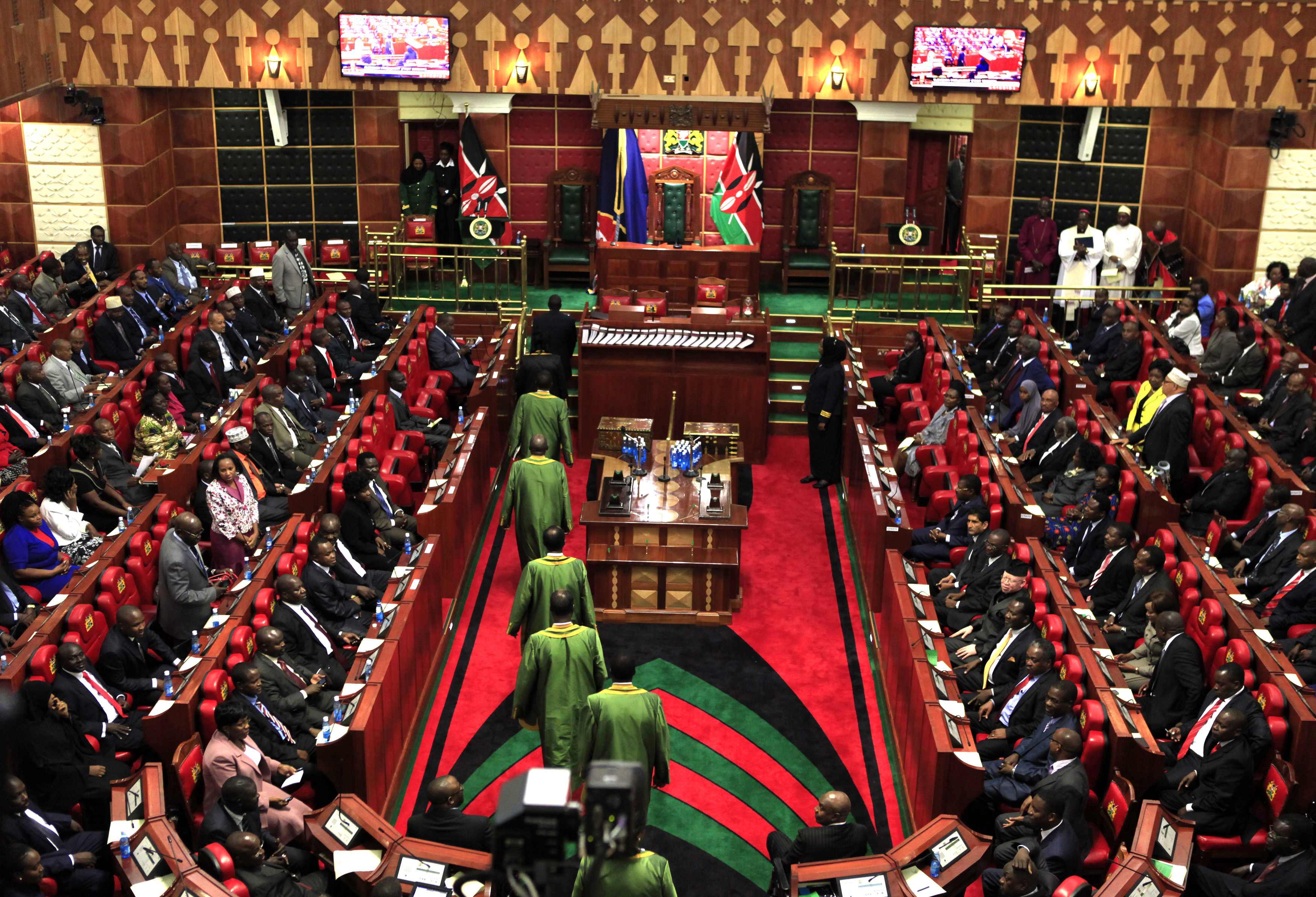
Kenya MPs vote to delay tax plan on fuel
Efforts by the Kenya's national treasury to block an extension period required for the introduction of a 16 per cent levy on petroleum products faltered Wednesday as lawmakers overwhelmingly voted for the third time in six years, to suspend the levy that was supposed to take effect from September 1.
Not even the presence of national Treasury Cabinet Secretary Henry Rotich in the gallery of the debating chamber could dampen the determination by the MPs to amend the proposal in the Finance Bill, 2018 that would have seen the levy take effect and with it a sharp rise in the cost of living.
The legislators' move now delays the implementation of levy for two more years in an amendment introduced by Suna East MP Junet Mohamed during the consideration of the Finance bill.
The National Treasury had sought to introduce the VAT in the bill as part of raising revenue to finance the Sh3.074 trillion budget.
CUSHION KENYANS
The postponement of the law, will now cushion Kenyans from what would have been a high cost of living coupled with fears of inflation and close of businesses.
“If we impose the taxes, it will raise the cost of living to unimaginable levels. It is the time to rise to the occasion and ensure that we side with the people,” Mr Mohamed appealed to his colleagues, moments before it was passed.
Had Mr Mohamed’s proposal failed, it would have been specifically injurious to the low income earners and local manufacturers with fears that majority of them were contemplating shifting bases to the neighbouring countries- Tanzania and Uganda.
The law was first introduced on petrol, diesel, kerosene and jet fuel in the VAT Act of 2013, with a three-year grace period that would have seen it come into force in 2016 when it was once again deferred to September 1, 2018.
PUBLIC OUTCRY
The postponement was occasioned by public outcry at the time the economy was not doing well.
Leader of minority John Mbadi who is also Suba South MP accused the International Monetary Fund of engineering the proposal against Kenyans.
“We cannot rob the poor to fund the budget. If you impose it, the price of the basic commodities would have gone up by more than 20 per cent,” Mr Mbadi said even as he appealed to the House to consider doing away with the process all together.
The government has twice deferred the implementation of the 16 per cent VAT in the last two financial years following public outcry.
Before the amendment was brought to the floor, the Treasury had tried behind the scenes to ensure that it was not placed on the Wednesday’s Order paper.
HIKE FARES
“In fact the Treasury wrote to the Speaker demanding that the amendment be shelved. But the attempt failed because the Speaker had already approved it and had the House Business Committee schedule it on the Order paper,” an MP confided to the Nation.
The source further said that the Finance and National Planning Committee chairman Joseph Limo had also tried to reach out to the Speaker arguing that Mr Mohamed’s amendment had been processed outside the committee.
Had the bill passed in its original form, the prices of diesel that is used to power heavy commercial vehicles such as buses and tractors, would have cost Sh119.77 a litre while petrol would have shot up to Sh130 per litre.
Players in public transport industry had threatened to hike fares up to 30 per cent with Cotu secretary-general Francis Atwoli has threatening to call for a national strike of all the workers over the same.
Credit: Nation.co.ke
